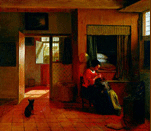










22.
Woman of Power: Elizabeth I Then and Now
Organizers:
Description:
There is no doubt that Elizabeth I was a powerful woman in her own day. In
recent years, scholars such as Susan Frye and Carole Levin have suggested
ways in which Elizabeth was implicated in the creation of her own public persona,
but it is also a persona that has persisted into modern times. Much has been
written about Elizabeth's relationship with the men of her court and its cultural
circles, but we want to focus on her relationships with other women and to
ask some of the following questions.
As we examine these questions and others, we will be dealing
with issues of class, social position, and mobility for women that are central
to the Second Plenary on Degree, Priority and Place.
Each of us will briefly (5 mins.) present a small number of items drawn from
three groups of materials: women correspondents of Elizabeth; early modern
women writers of the sixteenth or later seventeenth centuries who wrote about
her; and modern representations of Elizabeth that package her as "CEO,"
"Greatest Leader of the Millenium," or a somewhat Machiavellian
Cate Blanchette. In order to represent lower-class women whose voices are
harder to find, we will use brief excerpts from two historical accounts from
Elizabeth's own time. After each 5 min. segment, we will invite general questions
and discussion on that body of material and on any related items participants
have brought with them.
There is so much material on Elizabeth—both early and recent—that
we will encourage each participant to bring a text or images to share, possibly
based on material they have used or have thought about using in teaching.
We hope that one segment of discussion will query the impact of recent media
interest in Elizabeth on teaching early modern material, and will examine
some of the ways in which our own cultural perceptions about women and power
may direct the media. Past experience has shown us that the most successful
workshops offer a few comments and questions as a jumping-off place for the
participants to contribute their own ideas and questions into periods of discussion,
subtly directed by the workshop organizers to keep it flowing and on target.
We also want to leave time at the end to summarize basic points about issues
of women and power in the early modern period and today that have evolved
from the discussion, and that could stimulate pedagogy and scholarship.
List of Readings:
Correspondents with Elizabeth (about 5 pp):
Writings about Elizabeth by early modern women (about 12 pp):
Suggested Readings:
|
|
|
||||||
|
|
 |
 |
|
||||
 |
|
 |
|
||||
|
|
|
||||||
|
|
|
||||||
 |
|
||||||
|
|
|
||||||
| |
|
||||||
 |
|
||||||
 |
|
||||||
 |
|
||||||
 |
|
||||||
|
|
|
||||||
|
|
 |
|
|
||||
 |
|
||||||
|
|
|
|
|
|
|
|
|